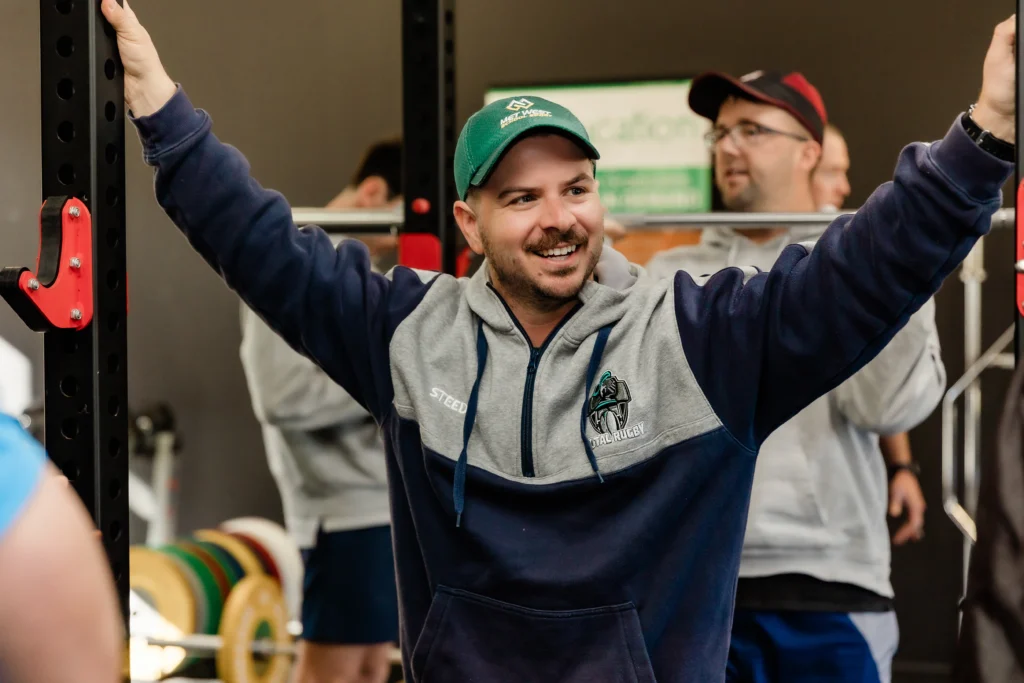Steve Nance.
In today’s confusing fitness landscape, the question of nutrition’s significance resonates loudly.
“How important is nutrition in the sports and the fitness industry?” is a question I get asked all the time. So, let’s talk about it. Let’s dive into the vital role that nutrition plays in our fitness journeys, and how education equips us to navigate this intricate terrain with confidence and expertise.

Nutrition’s Impact on Weight Management
I see people from the general public, every day, who believe they can lose weight by exercise alone. It is almost impossible. I say almost because most of us don’t have the time or determination to undergo physical training regimes that will result in weight loss without altering this through diet. Diet and nutrition are especially important for weight loss but are arguably more important for general health and well being as well as sports performance and recovery.
Let’s break this down. If we want to lose weight, we need to have a negative calorie imbalance, e.g. output must be greater that input. If we want to put weight on, we need to have a positive caloric imbalance, e.g. output must be less than input. This latter applies to increase in fat or muscle mass.
Now, we know that regular exercise is very important to our health. However, to use it as a weight loss method on its own is, as stated above, too hard for most and not sustainable. What we need is a sensible and regular exercise regime along with a careful calorie intake (diet) so that the ins are less than the outs.
In this instance, nutrition is exceptionally important. If weight gain (muscle increase) is desired, then it must be the other way, but we must be careful that weight gain is muscle (lean) increase and not fat increase.
Navigating the Nutritional Landscape: Quality Matters
We should also be concerned with the quality of these calories coming into the body. It should contain a sensible ratio of the macro nutrients: fats, carbs and proteins but also provide food types containing micronutrients in adequate supplies, such as vitamins, minerals, fibre and most importantly, fluid.
Science tells us that a well-balanced diet will improve athletic/physical performance. If our diet is missing even a small component such as vitamins or minerals on a regular basis, then performance will be affected.
The Evolution of Sports Nutrition: From Past to Present
In sporting environments, nutrition has become ever-increasingly important. It is crucial for, during and after exercise. But this wasn’t always the case. In the early days at the Brisbane Broncos, there was at least a consulting dietitian who usually only came in one or two mornings a week and wrote meal plans for hotels at away games. Now, there are 2 full time staff (dietitians) who are available 24/7. The help in meal preparation, supplements, and meal planning is on a full-time basis.
In the early days, if you had a double training session in one day, the boys were sent out to feed for themselves. This was usually McDonald’s and KFC. These were the favourites. Then after training, they hit the pub/club. Then, some supplements were thrown in. Now its professional. Players refuelled from the morning session and prepared for the afternoon session through individually prepared dietitian written diets.

Recovery
Recovery. Arguably, the most important aspect of the training week for the general population and athletes. This has changed drastically. Again, lets look at the early days at the Broncos. After the match, players were handed a sponsors beer where the only options were Gold or Full Strength. After training, some cold water. Hasn’t it changed! Again, through scientific research, we know that nutrition and adequate sleep are critical factors in recovering properly, i.e. fluid, protein, and sleep. Then we add active recovery, ice baths, restrictive garments, no alcohol, foam rolling and we have professional level recovery.
Dietitians are very protective of their industry. So, if not a qualified dietitian, trainers can only use Australian Dietary Guidelines and common sense. The scope of practice is very limited considering universal access to calorie counting and meal planning apps.
So, what’s the bottom line? Simply put, nutrition matters – a lot. Whether we’re trying to lose weight, gain muscle, or improve our athletic performance, what we eat plays a crucial role in our success. And as personal trainers, it’s our job to help our clients navigate the often-confusing world of nutrition with confidence and clarity. It’s a big responsibility, but one that’s incredibly rewarding. When we empower others to make healthier choices, we’re not just changing their lives – we’re changing the world, one meal at a time. If you want to learn more about nutrition study Fit Education’s Practitioner Certificate In Nutrition and work as a registered and insured Nutrirional Therapist.
RELATED ARTICLES:
Nutrition – What Advice Can Personal Trainers Provide?
Combine Fitness & Nutrition with Ease: Study a Certificate in Nutrition
